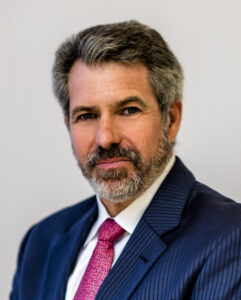Writer: Max Crampton-Thomas
 2 min read June 2021 — Jerome Hollo, executive vice president of Florida East Coast Realty, talks to Invest: about his group’s latest project, Panorama Tower. He also discussed the hot Miami real estate sector and his optimism for the market in general, despite certain inflationary pricing in the supply chain.
2 min read June 2021 — Jerome Hollo, executive vice president of Florida East Coast Realty, talks to Invest: about his group’s latest project, Panorama Tower. He also discussed the hot Miami real estate sector and his optimism for the market in general, despite certain inflationary pricing in the supply chain.
How has the Panorama Tower project performed?
During the pandemic, Miami became a very hot location, which Panorama Tower was able to capitalize on. The product we offer is much different from any other product out there. Our competitors are offering an average of 750 square feet for a one-bedroom, and at Panorama our units range from 1,100 square feet to over 2,100 square feet. We offer expansive units with dens and home offices. Obviously, during the pandemic, people saw this was a luxury building with an array of amenities, plus it has unmatched, sweeping water views. All of that worked to its benefit. On the whole, it’s been a very successful project and now we’re proud to say it’s 95% leased out.
What was the impact of the pandemic on the development sector?
That’s a very broad question. On the management side, there were issues providing a sufficient number of employees to manage a property. Also, On the commercial side there were issues with some of our tenants still in terms of their ability to pay rent. Thankfully the residential side fared much better. On the development side, there are more concerns. There has been inflationary pressure on materials, and labor was difficult to obtain.
How will Miami benefit from its growing status as a tech hub?
I think it’s wonderful what Miami Mayor Francis Suarez is doing in the City of Miami, actively trying to attract the tech sector. We’re not a big manufacturing sector, and most of what we do is service-oriented, but technology is one area where we could really excel. We have a lot of talent in technology, and this area could be very ripe for developing software. Obviously, any sector you create and foster can only help the whole economy and certainly helps commercial development.
How do you expect cost and supply chain issues to develop?
Inflationary pressure on costs is not new, but today’s environment, I think, includes pressures that are beyond inflationary. The problem arose because of COVID. Not only were manufacturers not able to produce the finished materials that we use, but they also weren’t able to collect the raw materials. I don’t know that you can really factor that kind of inflationary pressure into a project cost, but I will say that if you haven’t overleveraged yourself, you’re probably better off than someone who has.
Do you see any similarities between now and the 2008 crash?
I don’t see any similarities. Ten years ago, there was an oversupply of real estate and a lot of people were invested in it hoping to make money in the market and they lost money. Now though, certainly the single-family market is extremely strong, and not as an investment tool. Today, the government has tried to backstop a lot of renters and homeowners, and the institutional investors have a lot of cash for commercial assets, including single-family homes. That being said, certain commercial and retail properties have been negatively affected and it will take some time to come back.
How did the pandemic impact the work done by your family’s foundation?
Throughout the pandemic, the Hollo Family Foundation has continued to give back to a variety of charitable causes throughout the community. Due to the pandemic, many charities that often bring people together haven’t been able to do so this year, but our support has continued.
What is your outlook for the next 12 to 18 months?
I believe you’re going to start seeing some lagging sectors come back. Clearly, one of our biggest local drivers here is hospitality. When that comes back, you’re going to see a lot more people actually working, which will have a large impact on our overall economy in South Florida.
For more information, visit:
